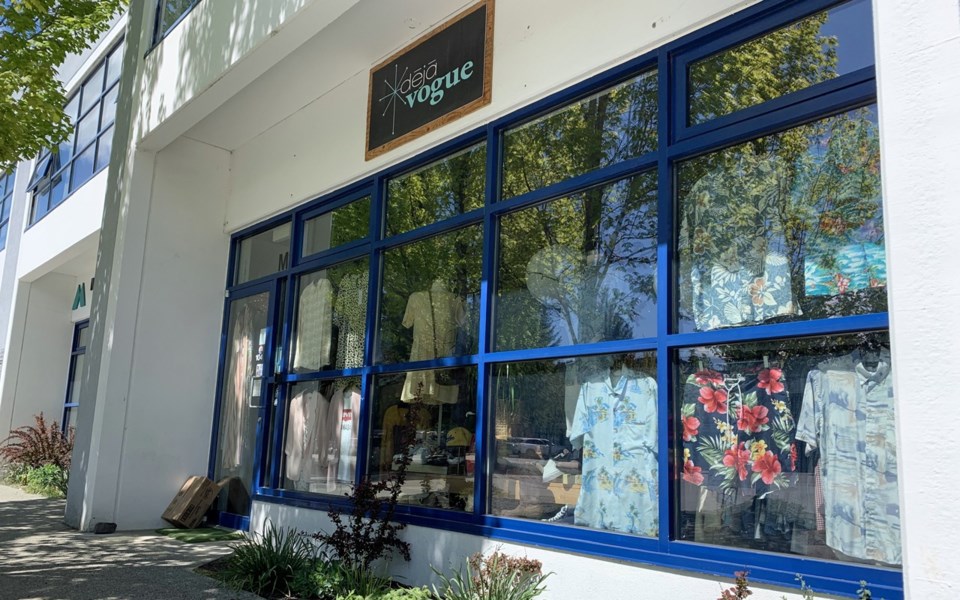
the re-use-it Centre is making plans to reopen in June.
"There's going to be an organized schedule for neighbourhoods [to drop off donations] for the first couple months to get the ball rolling so we're not inundated," said Whistler Community Services Society (WCSS) interim executive director Lori Pyne.
"All the neighbourhoods will know what their day is."
Pyne said the store would start accepting donations on May 29, but added the Re-Build-It Centre has no planned return date as the WCSS plans to use the space to support its other operations. (Keep an eye on mywcss.org for developments.)
Drop-offs will now be done in a drive-by fashion, with coordinators directing traffic. Pyne said donations should be clean and sorted, while items such as furniture, books, and cardboard are not being accepted at this time due to a lack of storage.
With the caveat that there are many variables at play, Pyne said the Re-Use-It Centre is targeting a June 14 reopening with WorkSafe BC and Ministry of Health regulations in place.
There will be no public washrooms or change rooms available, and items will be quarantined for three days when they are dropped off.
With fewer people in store, Pyne is unsure of how much money will come in.
"The profit from the store is how we run our organization, and it will be interesting to see how it affects the revenue," she said. "Sometimes, there's 50 people in the store buying and if we can't do that, it's going to affect our bottom line, for sure.
"We don't know what the comfort of the public will be to go shopping, but we are also aware that we offer low-cost goods to the community.
"We want to get that service going again."
Function Junction's two secondhand shops are both selling their wares, but taking different approaches.
At The Velvet Underground Shop, owner Amy Rafferty made a quick pivot to the internet, finding a way to sell the shop's vintage goods online.
"We transitioned immediately to online and the first month, we just had so much support from people," she said. "I don't know if they actually wanted anything or if they just wanted to support small business, so they were stoked that they could find things that they could buy."
Rafferty said the shop saw support from across the country and even some international orders.
"I think they might have been people that lived in Whistler that knew the business and were shopping," she said, adding that she gave locals the option of picking up at the store or having items delivered.
Even before the pandemic, Rafferty had looked at branching out into selling thrift items, noting that with the Re-Use-It Centre temporarily discouraging donations, several locals diverted their unwanted items to the shop. Rafferty put all items in storage for two weeks and then held its inaugural Cheap Frills thrift-shop pop-up earlier this month.
"My main motivation for this is to recycle clothing and to try to reduce our environmental impact," she said, noting that since she wasn't eligible for government support, the donations were essentially a "grant" to help the shop.
Rafferty implemented an online booking system that allowed three people per 20-minute slot, with all 63 slots filling up each day. During the sale, the odd customer tried on an item, many took their purchases as is.
"Everyone was so cool. They did their shopping in 20 minutes—a power shop—and out they went," she said.
Velvet Underground is open on Fridays and Saturdays with a maximum of 10 people allowed in at a time.
Over at Deja Vogue Boutique, owner Therese Lundgren said she closed for regular business after Whistler Blackcomb closed but has quietly remained open by appointment.
Lundgren said she enjoys having conversations with people and the in-person aspect of retail, so she is not inclined to do online sales and instead went into "hibernation."
"If the retail industry is going to turn me into a mini-Amazon, I'm not too interested in being in retail," she said.
Though she's losing money, Lundgren said she has savings and, as a consignment store, trades more work for fewer overhead costs.
Lundgren limits the number of people in store at any given time, has hand sanitizer onsite, accepts e-transfers and has asked customers feeling sick to return when they are better. Customers are allowed to try on clothes and she communicates the situation to customers as they enter to ensure they are comfortable.
"I've definitely noticed that people are very happy when I open up the doors," Lundgren said. "People are just happy to see some liveliness in Function Junction.
"Some people just need a place to come and chat, though I don't give out hugs like I normally do."



